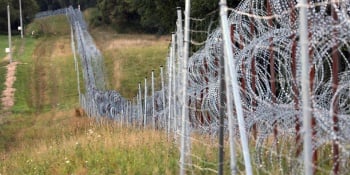Published: 13.02.2024

- Work on reforming the EU treaties is underway in the European Union.
- The changes under way may lead to a significant reduction in Poland's sovereignty in key areas such as international policy, health, border protection or monetary policy.
- The implementation of the reform may result, inter alia, in the EU taking over command of Poland's armed forces, replacing Polish diplomatic missions with EU services or giving Brussels control over the flow of immigrants.
- The EU will also be able to take over the supervision of key branches of Polish industry and acquire exclusive competence in the conclusion of climate protection agreements.
- The reform could also have the effect of imposing on member states the acceptance of abortion, surrogacy, euthanasia or permissive sex education.
- The report was presented at the press conference.
INFOGRAPHIC ABOUT THE CHANGES TO THE TREATIES - LINK
The reform of the treaties will bring Poland's foreign policy under the EU's overarching role. Polish diplomatic missions will be replaced by the European External Action Service. Command over Poland's armed forces will be taken over by the Defence Union. It will be possible to send Polish soldiers on military missions without the consent of the Polish government. The Union will also control the flow of migrants and may order the opening of migration routes. States will also be deprived of decision-making over cross-border infrastructure. This could mean Poland losing control over investments such as the Central Communication Port.
The changes will also limit the sovereignty of member states in terms of monetary policy. Poland will be put under pressure to adopt the euro. The Union will also be able to take over the supervision of key industries, even despite the veto of individual states. Brussels is also to acquire exclusive competence for climate policy agreements. This could mean deep interference in areas such as agriculture or urban planning.
The European Union will also take control of education. It will gain the competence to impose school curricula. This may entail a compulsion to implement permissive sex education. Also, competences in health care will be shifted from member states to EU institutions. This could result in the imposition of a common pandemic policy or the inclusion of abortion, euthanasia and surrogacy in health services.
The Ordo Iuris Institute presented a report on this subject at a press conference. Advocate Jerzy Kwaśniewski discussed the various areas that the treaty changes will cover. He pointed out the threats to Polish sovereignty that this would entail.
- Treaty reform is a real cession of national sovereignty to a new state. The European Union structures endowed with these competences are no longer a supranational organism. It is already a single centralised state, which we can call the Empire of Europe," pointed out the president of Ordo Iuris.
Dr Jarosław Lindenberg, a diplomat and former Deputy Foreign Minister, also spoke. He pointed out the roots of centralist aspirations in the European Union and the consequences of such actions.
- The European Union is an international organisation which, using a salami strategy, slices away the national sovereignty of the member states and creates a kind of political monstrosity. Once the treaties are amended, the Union will become the Union of European Socialist Republics,' Dr Lindenberg noted.
Patryk Ignaszczak, an analyst at the Ordo Iuris Centre for International Law, discussed the procedure for treaty amendments.
In view of the probable lack of the two-thirds vote in the Polish parliament needed to adopt such changes, in Poland this will probably take place through a nationwide referendum. The procedure for amending the treaties can be expected to take about two years and this time should be used to have a broad public debate on this reform, the lawyer stressed.

• The pressure on the European Union’s southern borders has continued unabated since the great migration crisis of 2015.

23.05.2025
We are currently engaging with think tanks and political parties across the continent to collaboratively develop a detailed counter-proposal to the centralist, anti-national, and anti-democratic vision of the European Union promoted by the European Parliament and President Macron.

19.05.2025
• The 78th World Health Assembly, the deliberative body of the World Health Organization, begins today in Geneva.

16.05.2025
On 13 May 2025, James Daniel Jordan, Chairman of the Judiciary Committee of the United States House of Representatives, together with four other members of the Committee, addressed a letter to Michael McGrath, European Commissioner for democracy, justice and the rule of law. The letter inquires how the European Union intends to respond to the actions of Donald Tusk’s government.